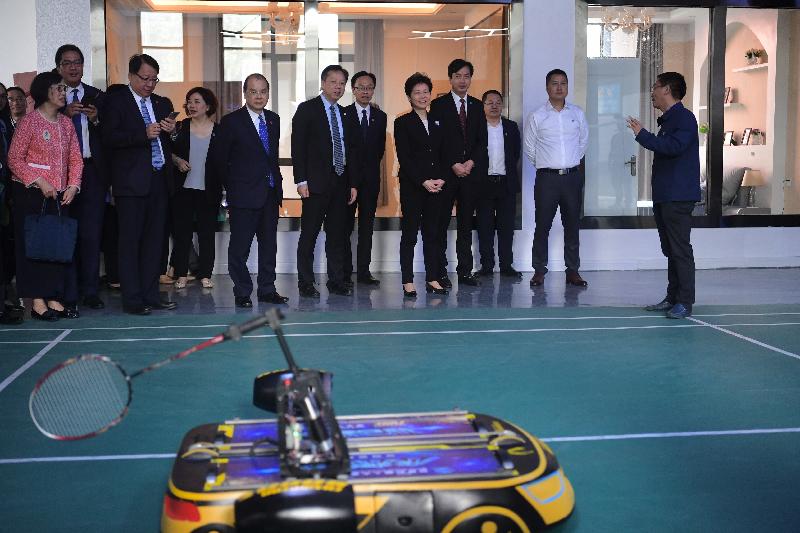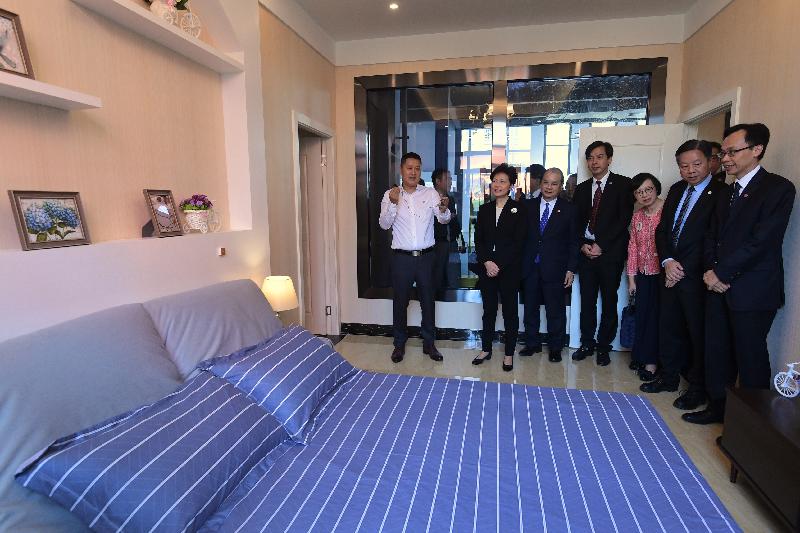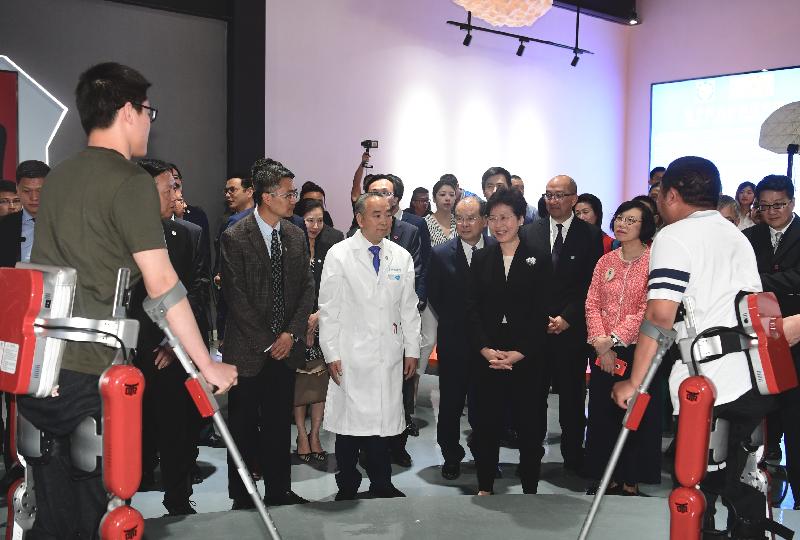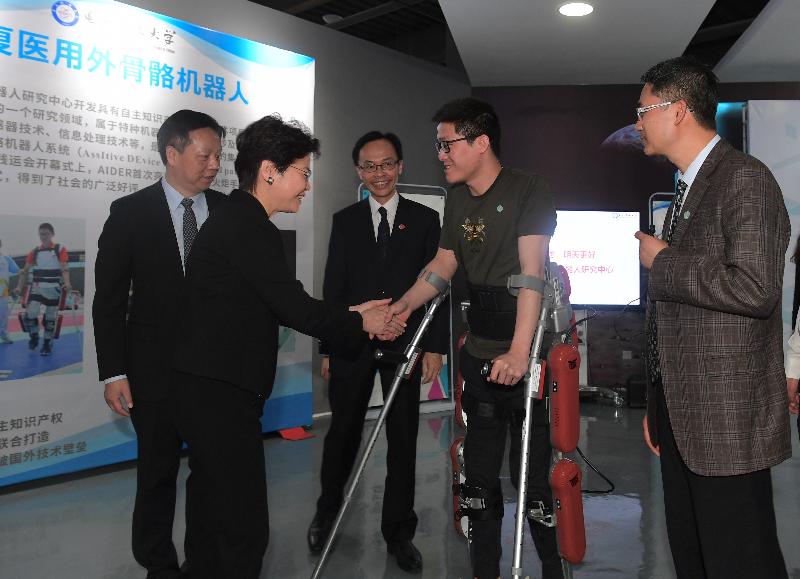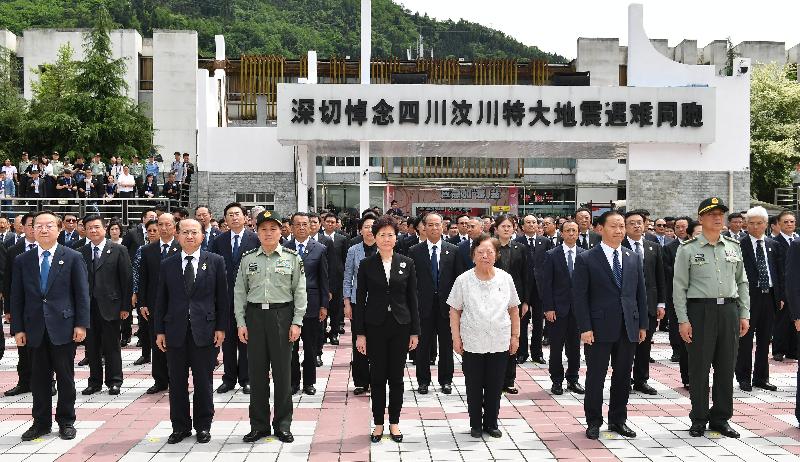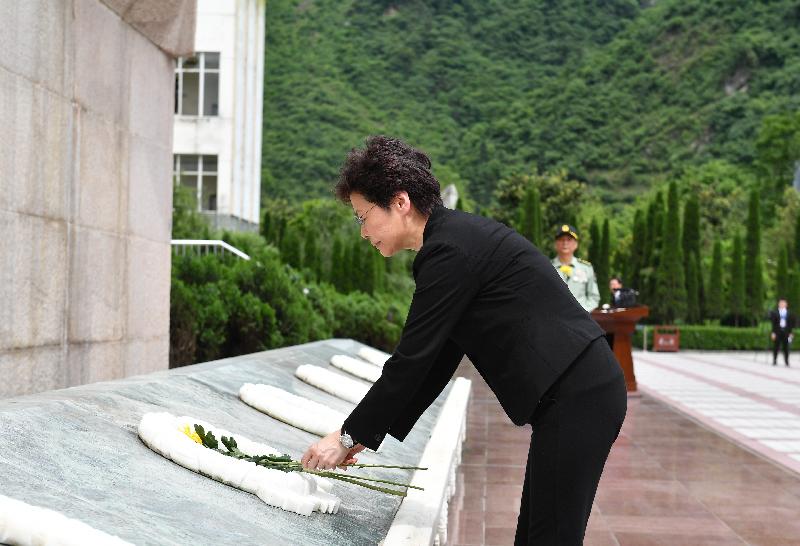The Centre for Health Protection (CHP) of the Department of Health is today (May 12) investigating a case of invasive meningococcal infection, a communicable disease transmitted by direct contact with droplets from carriers or infected persons.
The case involves a 29-days-old baby girl, with good past health, who has presented with fever and rash since May 10. She was admitted to the neonatal intensive care unit of Tuen Mun Hospital for treatment on the same day and is now in stable condition.
Her blood and cerebrospinal fluid sample were tested positive for Neisseria meningitidis upon laboratory testing. Her clinical diagnosis were meningitis and meningococcaemia.
Initial enquiries revealed that the patient had no recent travel history. Her home contacts have remained asymptomatic. The CHP's investigation is continuing.
"Meningococcal infection is caused by a bacterium known as meningococcus. It is mainly transmitted by direct contact through respiratory secretions, including droplets from the nose and throat, from infected persons. The incubation period varies from two to 10 days, and is commonly three or four days," a spokesman for the CHP said.
The clinical picture may vary. Severe illness may result when the bacteria invade the bloodstream (meningococcaemia) or the membranes that envelop the brain and spinal cord (meningococcal meningitis).
Meningococcaemia is characterised by sudden onset of fever, intense headache, purpura, shock and even death in severe cases. Meningococcal meningitis is characterised by high fever, severe headache and stiff neck followed by drowsiness, vomiting, fear of bright light, or a rash. It can cause brain damage or even death. The brain damage may lead to intellectual impairment, mental retardation, hearing loss and electrolyte imbalance. Invasive meningococcal infections can be complicated by arthritis, inflammation of the heart muscle, inflammation of the posterior chamber of the eye or chest infection.
Meningococcal infection is a serious illness. Patients should be treated promptly with antibiotics.
To prevent meningococcal infection, members of the public are advised to take heed of the following measures:
- Wash hands with liquid soap and water properly, especially when they are dirtied by respiratory secretions, e.g. after sneezing, and clean hands with alcohol-based handrub when they are not visibly soiled;
- Cover the nose and mouth while sneezing or coughing, hold the spit with tissue, dispose of nasal and mouth discharge in a lidded rubbish bin, and wash hands immediately;
- Avoid crowded places;
- Avoid close contact with patients who have fever or severe headache;
- Travellers to high-risk areas may consult doctors for meningococcal vaccination; and
- Travellers returning from high-risk areas should seek medical advice if they become ill and should discuss their recent travel history with their doctor.
The public may visit the CHP's website for more information on meningococcal infection.
